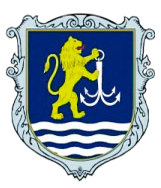EFFICIENCY OF AIR COOLING AT THE INLET OF A MARINE ENGINE WITH AN EXHAUST GAS RECIRCULATION SYSTEM BY EJECTOR AND ABSORPTION REFRIGERATION MACHINES
Abstract
Introduction. One of the main sources of intense air pollution is diesel internal combustion engines. With exhaust gases, they emit a large amount of harmful substances into the environment. Which cannot but have a negative impact on the ecological situation in the areas of water areas, repair depots, ports, on the flora and fauna of reservoirs and on human health. Reducing toxicity and the amount of harmful emissions is a complex scientific and technical problem. Regulatory requirements, which are tightening, dictate the need to address these problems. More often, their solution is accompanied by a decrease in the energy and economic performance of engines. The use of an exhaust gas recirculation system leads to a deterioration in the fuel efficiency of the engine, primarily due to a decrease in the operating cycle temperature and a slowdown in the combustion process. The presence of a scrubber in the recirculation system leads to energy losses, since it removes heat from the recirculation gases overboard. Purpose. The aim of the study is to improve the energy and environmental performance of the ship’s power plant. Results. Through the analysis, an approach is proposed to improve the energy and environmental efficiency of a ship power plant. This is achieved by cooling the engine inlet air with cyclic air coolers. The use of heat from recirculation and exhaust gases is justified. This makes it possible to compensate for the energy losses caused by the exhaust gas recirculation system, and also provides a further reduction in fuel consumption. The paper presents the results of an analysis of the effect that we obtain by cooling the air at the inlet to the turbocharger of a diesel engine with heatusing refrigeration machines that utilize the heat of recirculation and exhaust gases. Conclusions. It is shown that the fuel consumption of a diesel engine can be reduced by cooling the charge air in absorption and ejector chillers.
Downloads
References
2. MARPOL Consolidated edition 2020. URL: http://www.idgca.org/doc/ app5_290115.pdf, last accessed 2020/04/10.
3. Nag S., Sharma P., Gupta A., Dhar A. Experimental study of engine performance and emissions for hydrogen diesel dual fuel engine with exhaust gas recirculation. International Journal of Hydrogen Energy. 2019. Vol. 44, No 23, pp. 12163–12175. URL: https://doi.org/10.1016/j. ijhydene.2019.03.120.
4. Радченко Р.М., Пирисунько М.А. Метод рециркуляції відпрацьованих газів суднових дизелів для зменшення їх токсичності. Refrigeration Engineering and Technology. 2018. Vol. 54, No 4. pp. 11–16, Doi:10.15673/ ret.v54i4.1215.
5. Pyrysunko M., Radchenko A., Tkachenko V. Marine Diesel Engine Inlet Air Cooling by Ejector Chiller on the Vessel Route Line. In: Ivanov, V., Pavlenko, I., Liaposhchenko, O., Machado, J., Edl, M. (eds) Advances in Design, Simulation and Manufacturing V. DSMIE. 2022. Lecture Notes in Mechanical Engineering. Springer, Cham. URL: https://doi.org/10.1007/978-3- 031-06044-1_25.
6. Trushliakov E., Radchenko A., Radchenko M. The Efficiency of Refrigeration Capacity Regulation in the Ambient Air Conditioning Systems. In: Ivanov, V., Pavlenko, I., Liaposhchenko, O., Machado, J., Edl, M. (eds) Advances in Design, Simulation and Manufacturing III. DSMIE. 2020. Lecture Notes in Mechanical Engineering. Springer, Cham. URL: https:// doi.org/10.1007/978-3-030-50491-5_33.
7. Konovalov D., Radchenko M., Kobalava H. Increasing Ecological and Energy Efficiency of Combustion Engines by Using a Thermopressor. In: Nechyporuk, M., Pavlikov, V., Kritskiy, D. (eds) Integrated Computer Technologies in Mechanical Engineering. 2021. ICTM 2021. Lecture Notes in Networks and Systems, vol. 367. Springer, Cham. URL: https:// doi.org/10.1007/978-3-030-94259-5_40.
8. Konovalov D., Kobalava H., Radchenko M. Determination of hydraulic resistance of the aerothermopressor for gas turbine cyclic air cooling. In: TE-RE-RD. 2020, E3S Web of Conferences 180, 0101231. URL: https://doi.org/10.1051/e3sconf/202018001012.
9. MAN Diesel & Turbo. MAN B&W Two-stroke Marine Engines. Emission Project Guide. URL: https://marine.man-es.com/applications/ projectguides/2stroke/con-tent/special_pg/7020-0145-09_uk.pdf, last accessed 2019/06/22.
10. MAN Diesel Turbo. CEAS Engine Calculations. URL: https://marine. man-es.com/two-stroke/ceas, last accessed 2019/06/22.
11. Radchenko R., Pyrysunko M., Kornienko V. Effect of Utilization Exhaust and Recirculation Gases of Ship Diesel Engine in Absorption Chiller. In: Nechyporuk, M., Pavlikov, V., Kritskiy, D. (eds) Integrated Computer Technologies in Mechanical Engineering – 2021. ICTM 2021. Lecture Notes in Networks and Systems, vol 367. Springer, Cham. URL: https:// doi.org/10.1007/978-3-030-94259-5_43.
12. METEOMANZ. URL: http://meteomanz.com, last accessed 2021/12/21. 13. NOAA’s. URL: https://www.nodc.noaa.gov/OC5/WOD/datawodgeo.html, last accessed 2021/12/16. 14. Ship & Bunker. URL: https://shipandbunker.com/prices#VLSFO, last accessed 2020/04/10.





